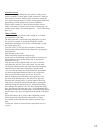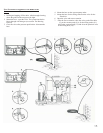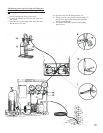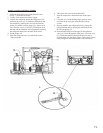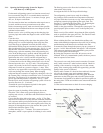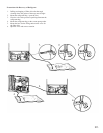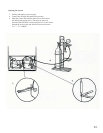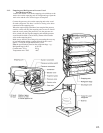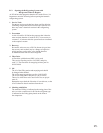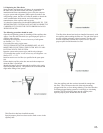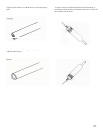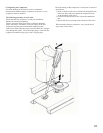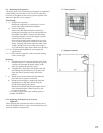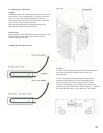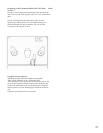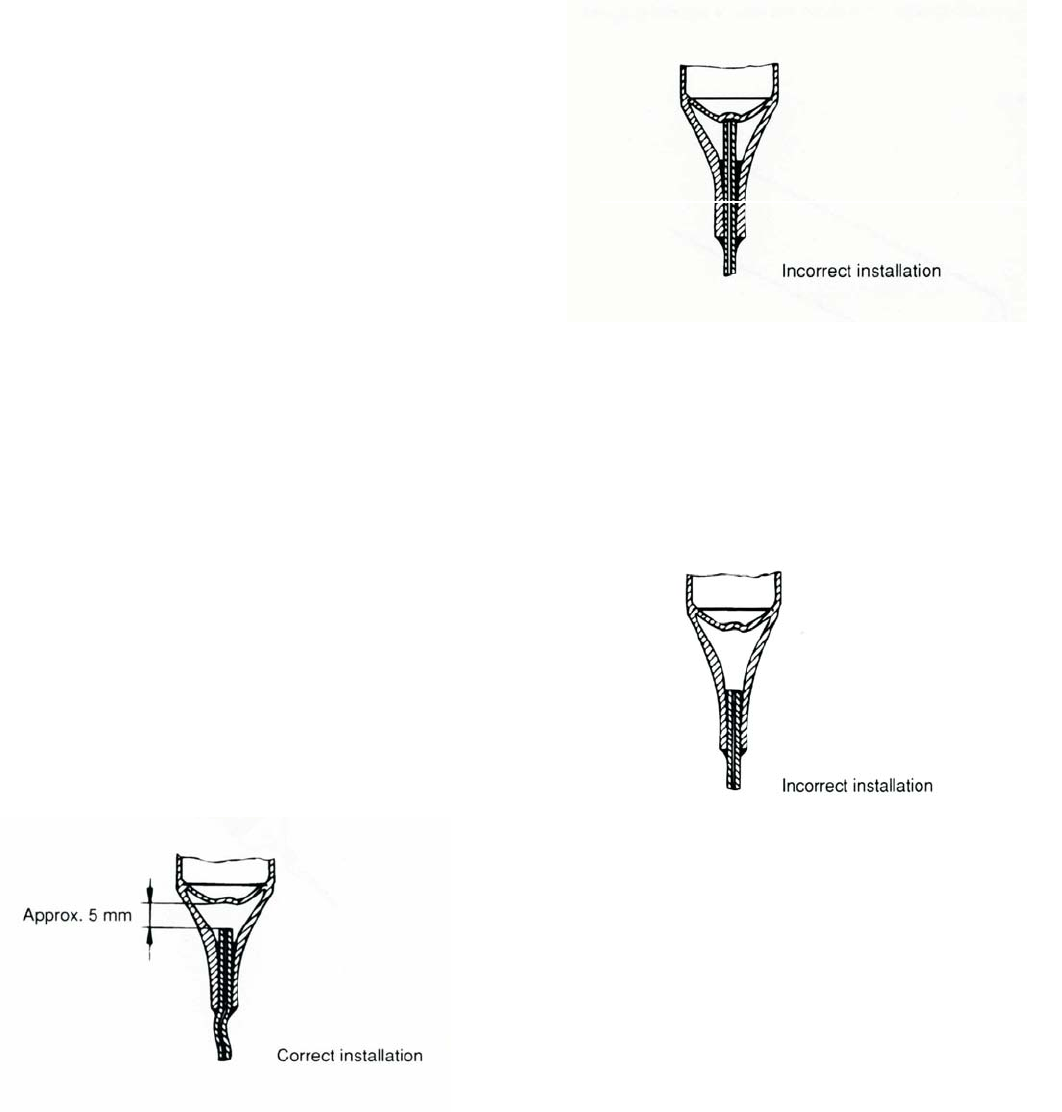
2.2. Replacing the Filter Drier
Some moisture and impurities will always be accumulated in
the filter drier, both from residue left in the system after
installation and from contamination given off by the compres-
sor, pipe system and refrigerant. When repairs are made to the
refrigerating system, the filter will often be unable to absorb the
extra contamination which results, and ice blockage and
contamination of the capillary tube can result.
It is therefore important to note that REPAIRS MADE TO THE
REFRIGERATING SYSTEM HAVE NOT BEEN CORRECTLY
CARRIED OUT UNLESS THE FILTER DRIER HAS ALSO
BEEN REPLACED.
The following procedure should be used:
Open the refrigerating system by breaking off the capillary tube
approx. 5cm after the filter drier (use special-purpose pliers or
capillary tube scissors).
Discharge the refrigerant. In case of recovery of refrigerant -
see Section 2.1.1. + 2.1.3.
Cut out the filter using a pipe cutter.
THE FILTER MUST NOT BE SOLDERED OFF, AS ANY
MOISTURE COLLECTED IN THE FILTER WILL EVAPO-
RATE BACK INTO THE SYSTEM.
Open the system at the process pipe and blow dry nitrogen
(N2) through the system. In case of recovery of refrigerant - see
Section 2.1.1. + 2.1.3.
Install an outsize service filter (as specified in the spare parts
list).
Ensure that the capillary tube does not touch the compressor
when the filter is positioned.
Should this happen, the flow through the capillary tube can be
reduced (moisture barrier). This problem can be confused
with
slight under-filling of the system.
This filter drier has been installed correctly.
Special-purpose pliers have been used to make a wave in the
capillary tube.
The filter drier shown here has been installed incorrectly, with
the capillary tube touching the filter net. The end of the tube is
not free, and the resistance is thus increased. The tube will
become completely blocked after a period of use. Special-
purpose pliers should therefore be used.
Here the capillary tube has not been inserted far enough into
the filter. This will increase the risk of the tube becoming
plugged with flux or silver during soldering. The risk of the tube
becoming plugged during operation is also high, as circulating
particles will be led directly down into the capillary tube.
Special-purpose pliers should therefore be used.
26.



